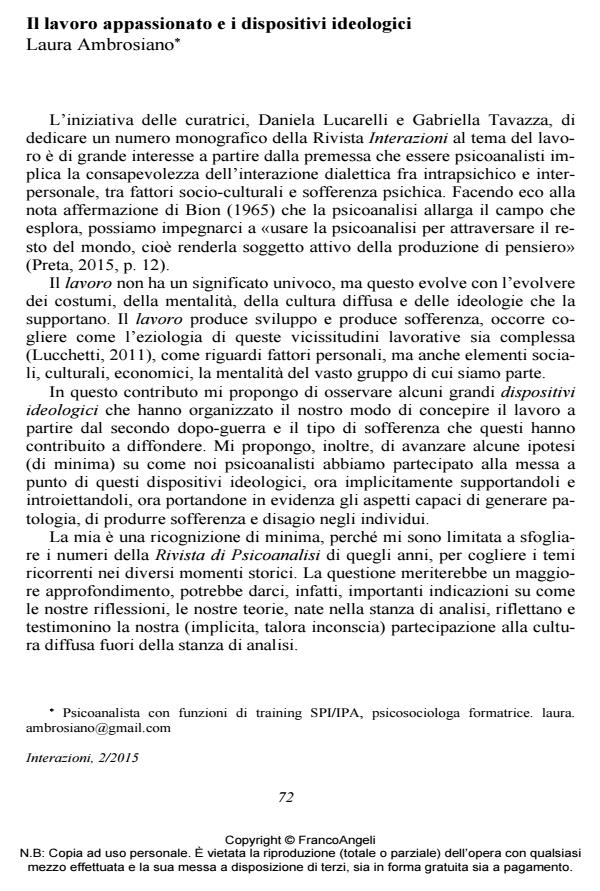Passionate work and ideological devices
Journal title INTERAZIONI
Author/s Laura Ambrosiano
Publishing Year 2016 Issue 2015/2
Language Italian Pages 14 P. 72-85 File size 59 KB
DOI 10.3280/INT2015-002006
DOI is like a bar code for intellectual property: to have more infomation
click here
Below, you can see the article first page
If you want to buy this article in PDF format, you can do it, following the instructions to buy download credits

FrancoAngeli is member of Publishers International Linking Association, Inc (PILA), a not-for-profit association which run the CrossRef service enabling links to and from online scholarly content.
The experience of work has no unequivocal meaning: its meaning evolves together with the evolution of mentality, of common culture and of the ideologies supporting it. In this contribution my purpose is to observe some of the greatest ideological devices (systems) that have organized our way of thinking about work since after World War II. I also aim to put forward some (indicative) hypotheses about how we psychoanalysts participated at the creation and tuning of those ideological devices, sometimes supporting them implicitly and introjecting them, sometimes emphasizing those aspects of theirs that could put people in discomfort.
Keywords: Mentality, sublimation ideological devices.
Laura Ambrosiano, Il lavoro appassionato e i dispositivi ideologici in "INTERAZIONI" 2/2015, pp 72-85, DOI: 10.3280/INT2015-002006